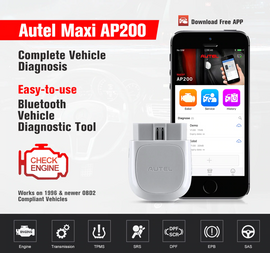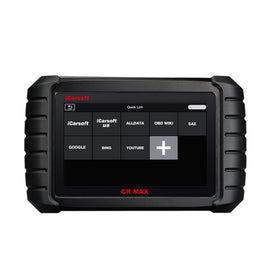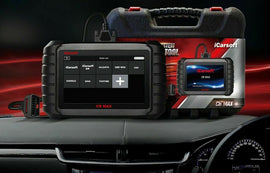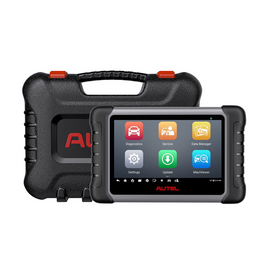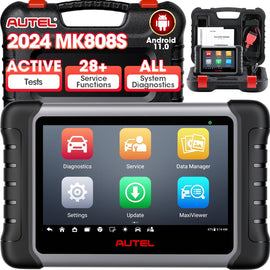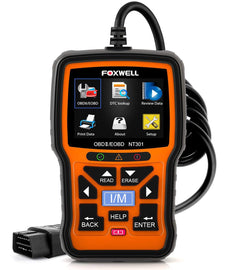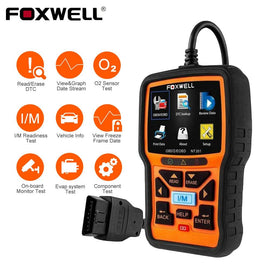The world is right now more inclined towards logistics-driven operations. Whether you are managing a fleet business, such as delivery services, you need to ensure efficient operations. If you own a full-scale fleet company with cars and drivers roaming all around the country, efficiency becomes even more essential.
At the same time, personal vehicle owners are becoming more conscious about car security. This is when you need real-time insights into vehicle locations and other movements, and a GPS tracker comes to the rescue.
We all use it one way or another; however, hardly any of us know how the GPS trackers actually work.
Let’s dive deep into the GPS tracker working process for cars.
How GPS Trackers Work
A GPS tracker, or Global Positioning System tracker, uses a bunch of satellites that orbit the Earth. These satellites send out signals that a device in your car picks up. By timing how long it takes for those signals to arrive from several satellites, the device can determine its exact location, including latitude, longitude, and altitude.
Once it knows where your vehicle is, it sends that info through cellular networks or radio waves to a central server or a mobile app. This way, users can get live updates on where the vehicles are, how fast they’re going, their travel history, and more. So, in a nutshell, GPS trackers for vehicles work through three main steps: gathering satellite data, sending that data, and showing the information.
To make things even easier, modern GPS devices can connect with car diagnostic tools, allowing you to monitor not just your location, but also performance metrics like engine condition, fuel efficiency, and maintenance reminders.

How does the GPS Tracker Work for Cars?
Let’s break down how GPS trackers work for vehicles:
- Signal Reception: The tracker picks up signals from at least four satellites.
- Position Calculation: It uses something called trilateration to figure out exactly where the vehicle is.
- Data Transmission: Then, through 3G or 4G networks, it sends real-time data to a server or an app.
- Data Display: Finally, you can see the location and other details on a user dashboard for tracking and analysis.
This ongoing process makes it possible to track vehicles accurately in real-time, whether you’re keeping an eye on just one car or managing a whole fleet.
Types of Vehicle GPS Trackers
When it comes to tracking different vehicles and uses, you need to know that there are various types of trackers out there. Knowing the differences can really help you pick the right GPS auto tracker, whether it's for cars or managing a fleet.
- 3G GPS Tracker: These rely on 3G networks to send data. While they're being slowly phased out in some areas, they still provide solid connectivity for basic vehicle tracking.
- 4G GPS Tracker: This is the newest generation, giving you quicker data transfer, better signal reliability, and wider coverage. They’re perfect for fleets that need accurate tracking and real-time updates.
- Hardwired GPS Tracker: This type is wired straight into the vehicle's electrical system. It’s great for long-term use, especially in fleet management, since it gets continuous power and integrates deeply with the vehicle.
- Magnetic GPS Tracker: These are portable and battery-operated, allowing you to attach them to any metal surface easily. They're perfect for short-term tracking or for monitoring personal vehicles.
Grasping the differences between hardwired and magnetic GPS trackers helps you decide if you need something permanent or more flexible.
GPS Tracking Systems for Fleets
Fleet management really depends on GPS tracking to make things run smoothly. These systems do more than just pinpoint a vehicle's location; they also provide insights into how drivers behave, whether routes are effective, and how long vehicles are sitting idle.
When you combine GPS data with telematics, companies can get real-time alerts and useful analytics. This helps cut costs, boost safety, and increase productivity.
Plus, many fleet GPS trackers come with geofencing features. This means managers can create virtual boundaries and get alerts if a vehicle steps outside those set areas. It's especially important for logistics companies, delivery services, and construction businesses that have to manage big fleets.
Subscription-Based and Non-Subscription GPS Trackers
If you're looking to buy GPS trackers in Australia, you'll notice there are two main types: subscription-based and non-subscription models.
Each has its own use cases:
- Subscription-Based GPS Trackers: These devices constantly send real-time data over cellular networks. They're great for things like fleet management, preventing theft, and businesses that need round-the-clock monitoring.
- Non-Subscription GPS Trackers: These are more for personal or occasional use. They either save data on an SD card or share it via Bluetooth, giving you updates now and then instead of always tracking live.
When choosing between subscription and non-subscription GPS trackers, it really boils down to how often you need to check the tracking data and how much you're willing to spend on ongoing services.
Benefits of Using a Vehicle GPS Tracking System
Once you get the hang of how GPS trackers work, it’s pretty clear they offer a bunch of benefits:
- Theft Prevention: With real-time tracking, you can quickly recover stolen vehicles.
- Operational Efficiency: Fleet managers can keep an eye on routes and tweak schedules for better performance.
- Maintenance Alerts: By connecting with diagnostics, these trackers can help spot and avoid mechanical issues before they become a problem.
- Driver Safety: Watching over speed and driving habits promotes safer driving.
- Cost Savings: Smarter routing helps cut down on fuel and maintenance expenses.
Conclusion
Understanding how GPS trackers work helps both individuals and businesses make smarter choices for vehicle safety and efficiency. These devices go beyond just tracking location — they integrate with diagnostic scan tools for Australian cars to offer performance insights, route optimization, and preventive maintenance alerts.
Whether you’re managing a delivery fleet or just want better control over your personal vehicle, choosing the best GPS auto tracker for cars ensures reliability and peace of mind.
At AutoLines Australia, we provide advanced vehicle diagnostic tools and GPS tracking solutions designed to enhance vehicle monitoring, security, and performance for Australian drivers and fleet owners alike.
FAQs
1. How does a GPS tracker work in a vehicle?
A GPS tracker determines your vehicle’s location using satellite signals and sends real-time data through cellular networks to a connected app, allowing users to monitor routes, speed, and movement history efficiently.
2. What components are used in a vehicle GPS tracking system?
A GPS tracker system includes a receiver, SIM card, power source, antenna, and software interface. These components work together to collect, transmit, and display location and performance data for tracking purposes.
3. Can a GPS tracker work without the internet or a mobile network?
Yes, some GPS trackers can store data offline or use Bluetooth and SD cards. However, without internet or mobile connectivity, real-time tracking and instant updates won’t be available.

